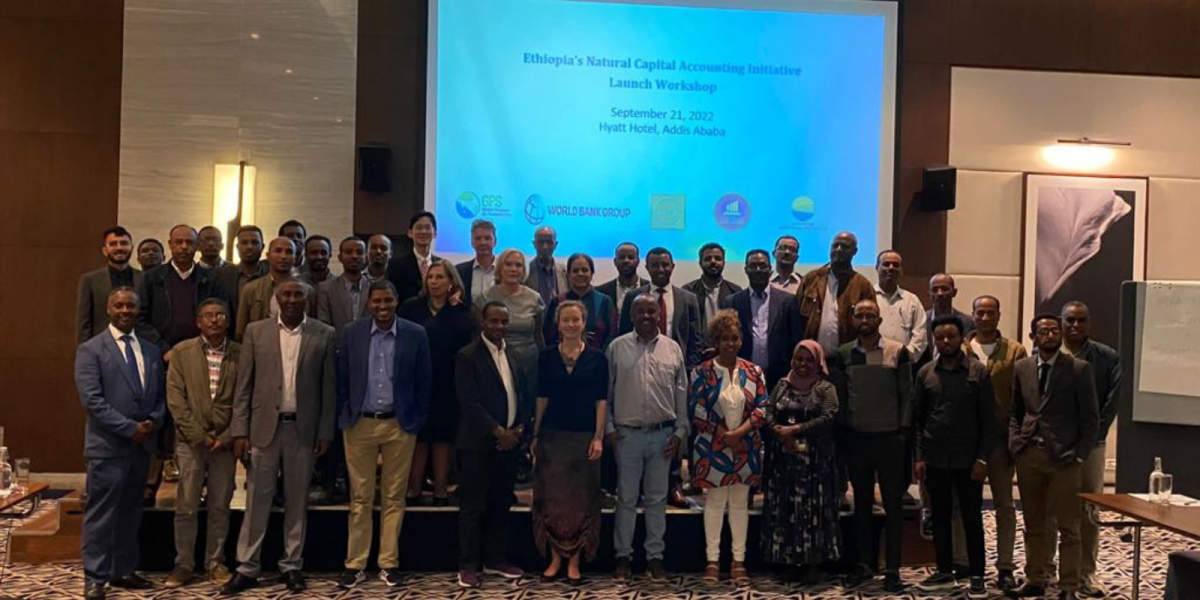Natural Capital Accounting Initiative launched in Ethiopia

From 19 to 23 September 2022, the UN Statistics Division (UNSD), In collaboration with the the World Bank’s Global Program for Sustainability (GPS), conducted a scoping mission to advance the Natural Capital Accounting (NCA) Initiative in Ethiopia.
Natural capital accounting is the incorporation of natural capital into national accounts, to capture the interactions between economic activity and the environment to support better economic decisions.
Ethiopia’s NCA initiative aims to build a robust information system for natural capital to inform national priorities and policies -- Climate Resilient Green Economy agenda, implementation of ten-year development plan and Ethiopia’s updated Nationally Determined Contribution -- and other landscape management projects.
The mission team held frutiful discussions with the Ministry of Planning and Development (MoPD), Ministry of Finance (MoF), Ministry of Agriculture (MoA) and their subsidiary agencies including Environmental Protection Authority (EPA), Ethiopian Statistical Services (ESS), Directorate of National Income Accounts (DNIA), Ethiopian Forest Development (EFD), and Policy Studies Institute (PSI). The team also met with other stakeholders, including NDC Partnership, World Resources Institute (WRI), and Ethiopian Investment Holdings (EIH), to seek their feedback on the scope of the NCA initiative.
During the mission, the NCA Initiative in Ethiopia was successfully launched, and agreements were reached regarding the scope of work and alignment with government priorities.
 Participants during the launch workshop of the Ethiopia's NCA Initiative in Addis Ababa on 21 September 2022
Participants during the launch workshop of the Ethiopia's NCA Initiative in Addis Ababa on 21 September 2022
The NCA launch workshop took place on September 21st. It was well attended by a wide range of government entities, research institutes and civil society organizations. Opening remarks were delivered by Mr. Biratu Yigezu, Director General of the ESS on behalf of the Minister of MoPD. Discussions at the workshop highlighted the need to identify options for institutional arrangements, stock-taking of data and institutions involved in data collection, and potential policy applications.
